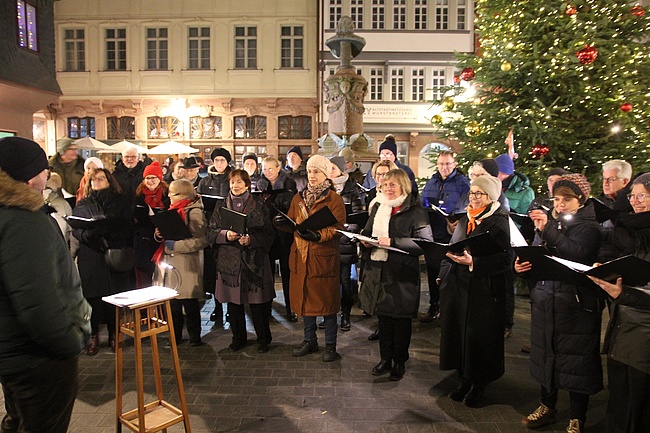Of course there is always a reason to grumble in a city like Frankfurt. And often such reasons are also justified. Many things are in a bad way in the city and there will still be much discussion and argument about some of them. Nevertheless, the results of the 25th citizens' survey, which city councillor Jan Schneider has now presented, reveal quite clearly: Frankfurt residents like living in their city. Really like it. 83 percent of those surveyed stated that they feel good in Frankfurt. Now that's a respectable figure.
But of course there are also problems. Citizens are particularly critical of the housing market, the traffic situation and public safety and order. Good marks are given to the city administration, which is seen as reliable and citizen-oriented. An upward trend is noted in political interest.
"For 25 years, the magistrate has been surveying citizens, thus obtaining an ongoing quality control of life in the city from the point of view of Frankfurt's citizens. The citizens' survey enables us to identify difficulties and respond to problems," Schneider noted. "In the central points of criticism, it becomes clear what the citizens considered to be particularly urgent. That is the goal of the citizen survey. It is not conducted to praise the city and its administration, but to provide up-to-date information bases for city management."
The results in detail
Frankfurters are satisfied with the city
Frankfurters continue to be satisfied with their city. Two thirds (65%) of the 1321 respondents stated this. Almost all (83%) like living in Frankfurt and only about one in seven (14%) would prefer to live somewhere else.
Housing market by far the biggest city problem
In the view of an increasing number of Frankfurt residents, the city's central problem area is the housing market. In response to the no-answer question about the biggest city problems, almost two out of three Frankfurt residents (61%) named high rents or the perceived inadequate supply of housing. A year earlier, only half of respondents ranked the housing market as the biggest problem.
Traffic situation and public safety ranked second and third.
Traffic situation (26%) and public safety (17%) continued to rank as the second and third biggest urban issues. "More frequent mentions had to be noted for these two topics as well," Schneider explained. In fourth place, with minor changes, is public transport (12%) and in fifth place the response category "disenchantment with politics/political parties" has moved up (12%). On the other hand, fewer people than in the previous year (10 instead of 12%) mentioned problems related to the relationship between Germans and foreigners. "This indicates a relaxed view of the people of Frankfurt," said Schneider. In a year-on-year comparison, the assessments on the subject of drugs were once again somewhat more critical (9 instead of 8%).
Frankfurt is perceived as international, economically powerful and cosmopolitan
Frankfurters see their city as significantly more international (85%/+4% points), economically powerful (84%/+4% points) and cosmopolitan (75%/+3% points) than in the previous year. "Particularly noteworthy are the positive changes in the perception of safety," Schneider said. Compared to the previous year, more women (28 %/+3 %-points) and men (33 %/+5 %-points) feel safe in the city. However, at the same time, the opposite view has also increased.
Frankfurters were also asked how they would describe the city to someone who did not know it. Unchanged, about two out of three respondents said Frankfurt is a city where it is good to live. More than half consider Frankfurt to be a "city that offers something for everyone".
Cultural image factors such as "city of museums" and "Goethe city" have receded somewhat into the background, and are perceived as less important for Frankfurt's external image than they were a few years ago. According to Schneider, it takes a certain amount of time to recognize Frankfurt's advantages: "The longer the respondents live in the city, the more their appreciation of the cultural offerings increases."
City administration enjoys high esteem among its citizens
Nfter the partially critical ratings of the previous year, personal esteem and satisfaction with the work of the city administration have again turned out significantly better. The best ratings achieved a few years ago were almost reached again. Almost two-thirds of those surveyed stated that they had a personally very good (13 %) or good (45 %) opinion of Frankfurt's city administration. Only a minority (6%) had the opposite opinion. Satisfaction with the work in the offices has also increased significantly and is at 45 percent (+5 % points) only slightly below the best values from 2015. "The proportion of dissatisfied is at four percent as low as never before," Schneider emphasized.
Frankfurters valued their city administration above all for its reliability. This characteristic has been at the top of the image components queried for years and, after the dip last year, reached a new all-time high this time with 57 percent (+4 % points). Only five percent (unchanged) are of the opposite opinion. "Such a positive assessment could not be registered so far," Schneider explained. "Even if the citizens don't like some things, they don't see the cause for it with the city administration."
Political interest as high as never before
The political interest of Frankfurt citizens is as high as never before. Highs were recorded at almost all political levels. Only interest in European politics (64%/-4% points) is lower than last year, but still higher than before.
Interest in politics has increased above all among young and first-time voters, while the values in the middle and older age groups have fallen slightly in some cases. Unchanged, the higher age groups are more interested in politics than the younger ones, but this does not apply to federal politics, where the 35 to 44 year olds (84%/+5% points) are far ahead.
The Internet is considered a particularly important source of information, while traditional media use is slightly lower than last year. "Interestingly, contrary to frequent assumptions, social networks have not become particularly important," the councillor said. In contrast, the election programs of the parties have virtually experienced a renaissance, especially among the youngest eligible voters (50%/+15% points).
"frankfurt statistik aktuell" 17-21/2018 are available at <link http: www.frankfurt.de statistik_aktuell _blank>
as free PDF downloads available











